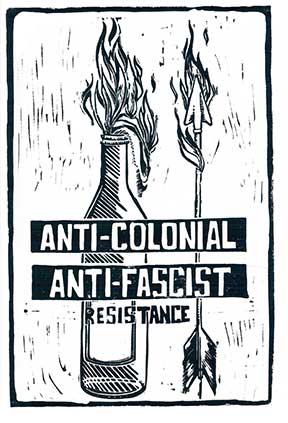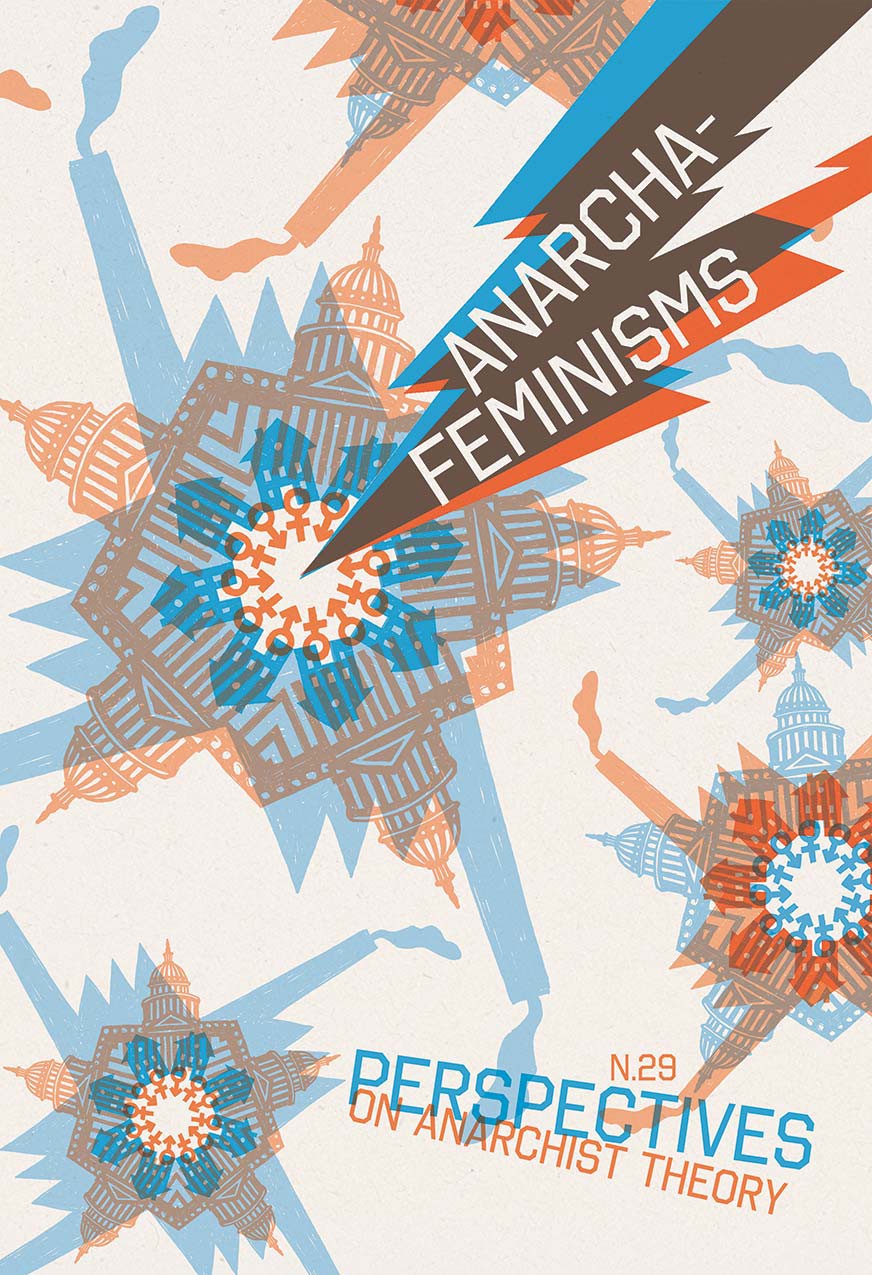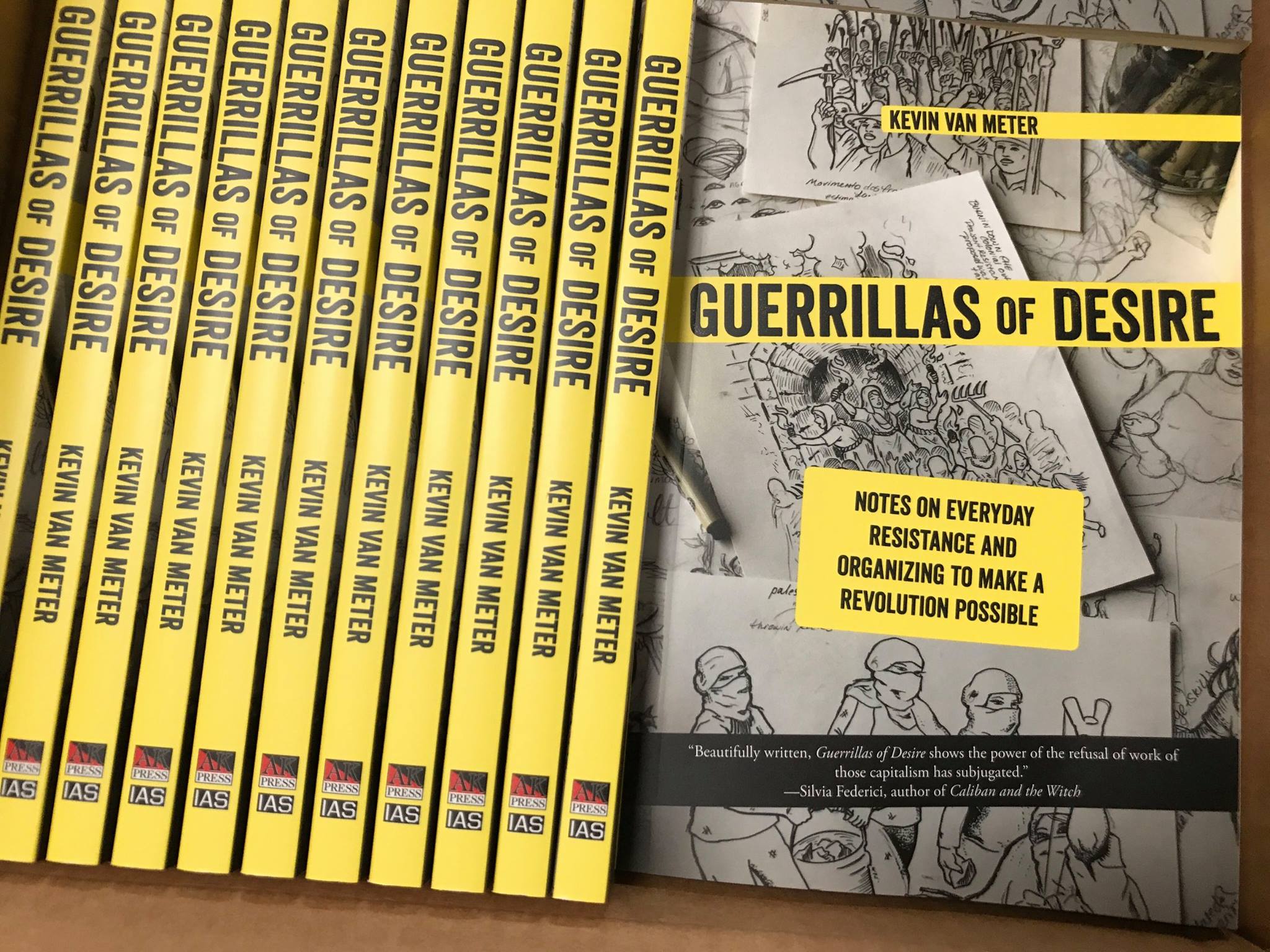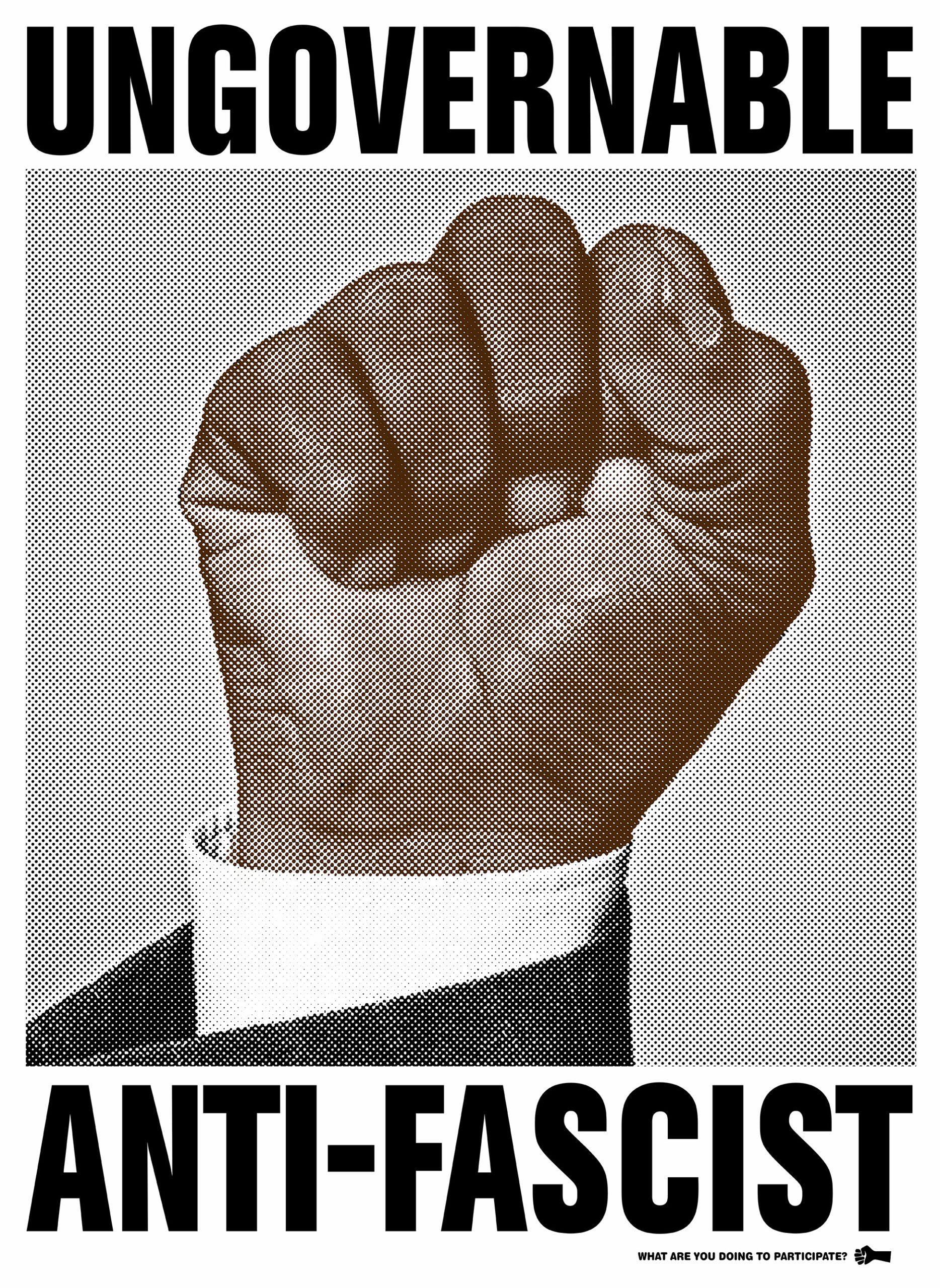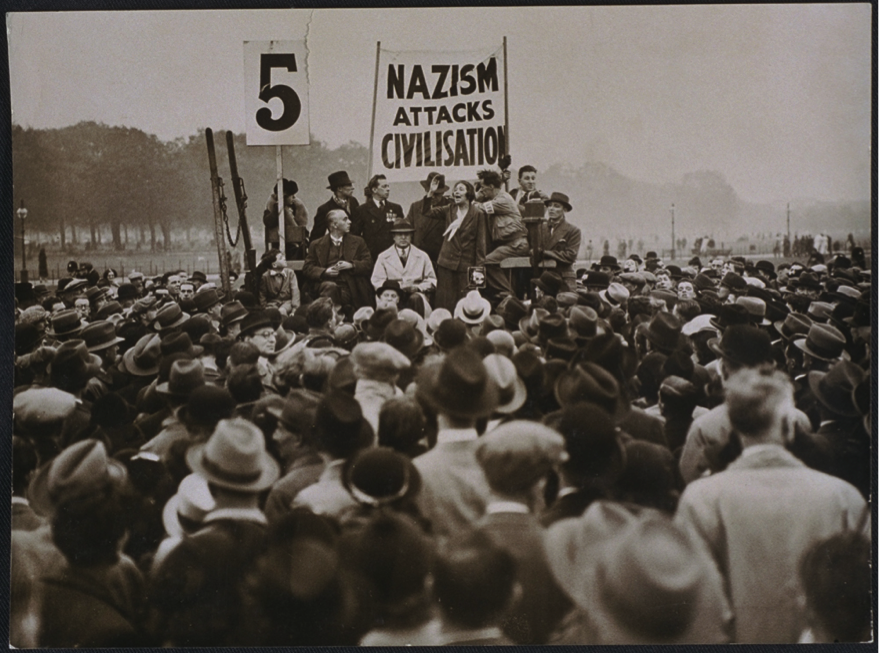The Beyond Anti-Fascism, But Not Without It statement was circulated in December, 2017, generating a number of both positive and negative responses.
Positive responses include Hillary Lazar’s piece, Connecting Our Struggles: Border Politics, Antifascism, and Lessons from the Trials of Ferrero, Sallitto, and Graham, in the forthcoming print issue of Perspectives on Anarchist Theory (N.30, “Beyond the Crisis”), as well as other writing we’ll be sharing on-line soon.
Negative responses included critiques that the call was, a) being improperly essentialistic about identity politics and b) disregarding the fact that some of the white men writing about fascism/anti-fascism are Jewish and therefore it was insulting to say they don’t understand the history of fascism.
In light of these responses, we have rewritten the statement and are including it in the new print issue of Perspectives on Anarchist Theory. Below you’ll find this new version, followed by a reflection on how we got from the original to this one, and what we still find inadequate and needing in our discussions of fascism and anti-fascism. And here we really want to encourage you to use our comments section for discussion, or send us your thoughts to be considered for posting on-line.
